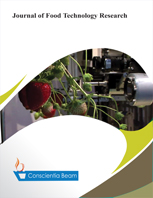Assessment of knowledge, attitudes, and practices of populations regarding the consumption of camel meat in the Sahel of Niger
DOI:
https://doi.org/10.18488/jftr.v12i1.4149Abstract
Camel meat, a food with high nutritional value, is still subject to socio-cultural considerations within certain Nigerien communities. Thus, this study of knowledge, attitudes, and practices (KAP) regarding the consumption of this meat was carried out to rule out these socio-cultural considerations. To do this, a sample of 236 households, distributed according to the weight of urban households, was the subject of a cross-sectional survey in three (3) large cities in Niger (Niamey, Tahoua, and Agadez). The results reveal that camel meat is not highly appreciated for its organoleptic quality and certain beliefs and customary taboos. Indeed, this meat is perceived by pregnant Nigerien women (71.9%) as a food that “prolongs the pregnancy by one year.” Additionally, knowledge and attitudes towards camel meat are based on its perception. However, two categories of consumers have been identified: occasional and regular. These two categories of consumers perceive camel meat in their diet differently. Thus, 43% of consumers attribute nutritional and therapeutic virtues to camel meat, while 32.6% of consumers consider that camel meat is similar to other red meats. Furthermore, 3.3% of consumers advocate the Islamic benefits of camel meat to justify its consumption. However, it was noted that 14.1% of consumers reject camel meat because they are not accustomed to it, and 7% of consumers reject camel meat due to its poor organoleptic quality. Thus, the perceptions observed by consumers about camel meat are much more cultural than real. In short, this study can contribute to changing social behavior towards camel meat.

